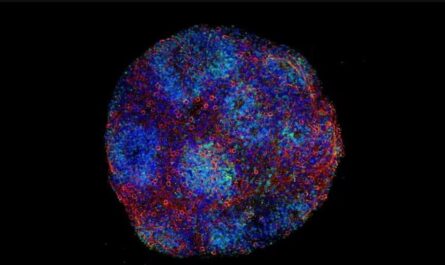A recent study conducted by researchers from DTU and three European universities sheds light on the role of the gut immune system in Crohn’s disease (CD) and how certain disease-driving gut bacteria contribute to the severity of the condition. Crohn’s disease is a chronic inflammatory bowel disease characterized by severe and debilitating symptoms.
The study reveals that antibodies in the gut immune system, known as immunoglobulins, play a crucial role in determining why some CD patients experience more severe inflammation than others. These antibodies line the stomach and intestinal walls, acting as a defense mechanism against harmful bacteria that enter the gut. By binding to pathogens such as bacteria, viruses, and fungi, these antibodies help prevent the spread of bacteria and alert the immune system to destroy them.
One of the primary issues in understanding Crohn’s disease is the lack of conclusive evidence explaining why some individuals develop severe inflammation in the gut. The research suggests that certain bacteria, particularly Campylobacter and Mannheimia, possess the ability to evade antibody coating and trigger uncontrolled inflammation in severe cases of Crohn’s disease.
The study highlights the significance of IgG antibodies in the gut immune system, especially in severe cases of Crohn’s disease. While IgA is traditionally considered the primary antibody for coating bacteria in the gut, IgG, which is typically found in the blood and body fluids, plays a crucial role in severe CD cases. The research shows that patients with severe Crohn’s disease exhibit higher bacterial coating with IgG2 compared to healthy individuals and those with milder symptoms.
The findings suggest that IgG2 bacterial coating could serve as a potential biomarker for identifying more severe cases of Crohn’s disease. By monitoring the levels of IgG2 coating in the gut, clinicians may be able to differentiate between patients with severe disease and those with a milder disease course. This insight could lead to the development of targeted therapies aimed at reducing inflammation by mimicking the effects of antibodies to prevent bacterial infections associated with severe Crohn’s disease.
Overall, the study provides valuable information that could help improve the diagnosis and management of Crohn’s disease. By understanding how certain bacteria evade the immune system and contribute to inflammation, researchers hope to develop more personalized treatment approaches that target the underlying causes of the disease. Further research is needed to explore the potential clinical implications of these findings and develop strategies to benefit patients with Crohn’s disease.
*Note:
1. Source: Coherent Market Insights, Public sources, Desk research
2. We have leveraged AI tools to mine information and compile it



